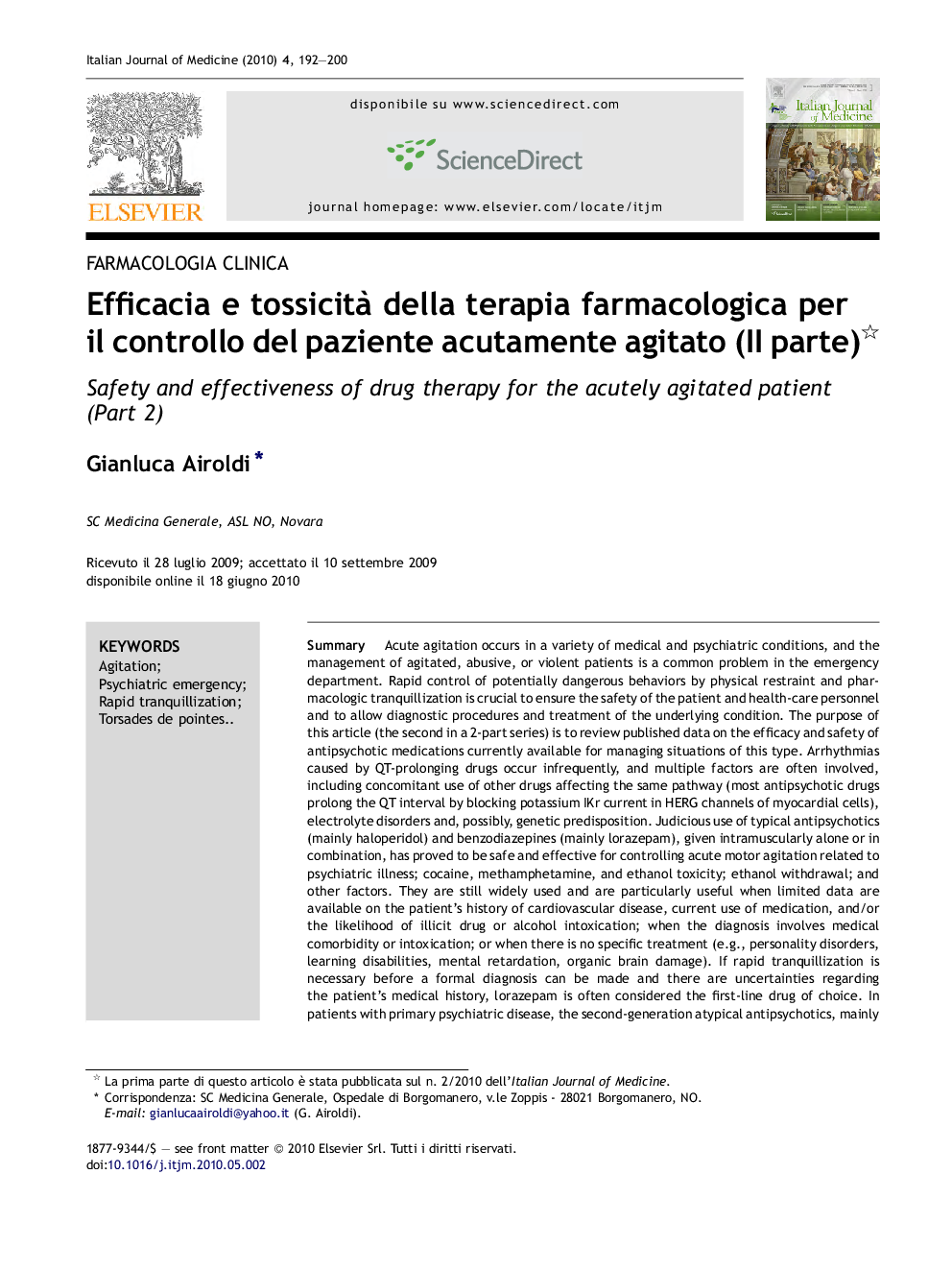| کد مقاله | کد نشریه | سال انتشار | مقاله انگلیسی | نسخه تمام متن |
|---|---|---|---|---|
| 3474983 | 1596743 | 2010 | 9 صفحه PDF | دانلود رایگان |
عنوان انگلیسی مقاله ISI
Efficacia e tossicità della terapia farmacologica per il controllo del paziente acutamente agitato (II parte)
دانلود مقاله + سفارش ترجمه
دانلود مقاله ISI انگلیسی
رایگان برای ایرانیان
موضوعات مرتبط
علوم پزشکی و سلامت
پزشکی و دندانپزشکی
پزشکی و دندانپزشکی (عمومی)
پیش نمایش صفحه اول مقاله

چکیده انگلیسی
Acute agitation occurs in a variety of medical and psychiatric conditions, and the management of agitated, abusive, or violent patients is a common problem in the emergency department. Rapid control of potentially dangerous behaviors by physical restraint and pharmacologic tranquillization is crucial to ensure the safety of the patient and health-care personnel and to allow diagnostic procedures and treatment of the underlying condition. The purpose of this article (the second in a 2-part series) is to review published data on the efficacy and safety of antipsychotic medications currently available for managing situations of this type. Arrhythmias caused by QT-prolonging drugs occur infrequently, and multiple factors are often involved, including concomitant use of other drugs affecting the same pathway (most antipsychotic drugs prolong the QT interval by blocking potassium IKr current in HERG channels of myocardial cells), electrolyte disorders and, possibly, genetic predisposition. Judicious use of typical antipsychotics (mainly haloperidol) and benzodiazepines (mainly lorazepam), given intramuscularly alone or in combination, has proved to be safe and effective for controlling acute motor agitation related to psychiatric illness; cocaine, methamphetamine, and ethanol toxicity; ethanol withdrawal; and other factors. They are still widely used and are particularly useful when limited data are available on the patient's history of cardiovascular disease, current use of medication, and/or the likelihood of illicit drug or alcohol intoxication; when the diagnosis involves medical comorbidity or intoxication; or when there is no specific treatment (e.g., personality disorders, learning disabilities, mental retardation, organic brain damage). If rapid tranquillization is necessary before a formal diagnosis can be made and there are uncertainties regarding the patient's medical history, lorazepam is often considered the first-line drug of choice. In patients with primary psychiatric disease, the second-generation atypical antipsychotics, mainly risperidone and olanzapine, were shown to be at least as effective, and possibly safer, than traditional agents.
ناشر
Database: Elsevier - ScienceDirect (ساینس دایرکت)
Journal: Italian Journal of Medicine - Volume 4, Issue 3, September 2010, Pages 192-200
Journal: Italian Journal of Medicine - Volume 4, Issue 3, September 2010, Pages 192-200
نویسندگان
Gianluca Airoldi,